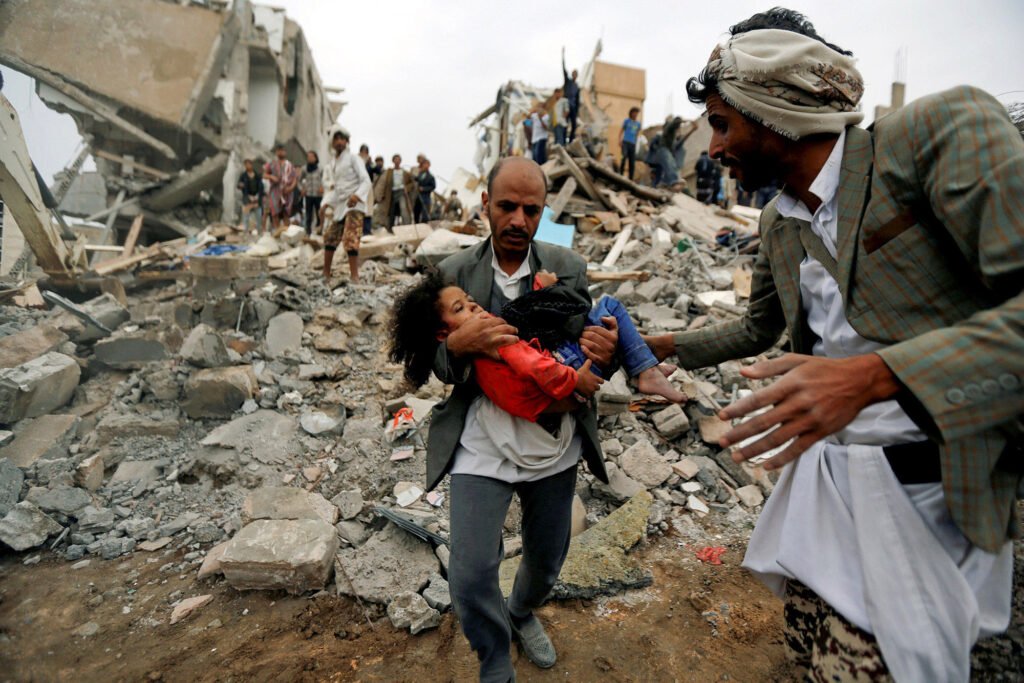War brings immense bloodshed and irreversible loss and depletes countries of their resources. The helpless populations of each country at war are forced to stand by and watch their homelands crumble. This is why, while countries are in crisis, other states intervene, and people globally offer their support. Support and global recognition are critical when two countries fight and ensure the eternal remembrance of something as deadly as war. However, they are even more essential when one country is at war with itself.
Yemen, a primarily Sunni Muslim republic, has been amidst a civil war for nearly a decade. According to the Council of Foreign Relations, the war began in 2014 when Houthi insurgents, or Shia Muslim rebels, conquered Sana’a, Yemen’s capital city. These rebels demanded lower fuel prices and a reconstructed government. The Houthis overtook the former Yemeni government in a previous riot in 2011, and in 2016, they established their own “political council” to govern Sana’a and a majority of northern Yemen. From that point on, the Houthis continued to attack Yemen. This political instability has led to Yemen’s poor economy and overall shattered state.
This conflict is taking a toll on the well-being of the country’s population and has led to the start of a massive humanitarian crisis. One of the most significant issues in this crisis is nutrition. According to the United Nations, “80% of the country struggles to put food on the table,” which has led to a drastic increase in malnutrition, especially youth-wise. The World Food Programme has reported over 2.2 million malnourished children (age five and below) in Yemen. This war has also slaughtered the mental state of millions of Yemenis. According to UNICEF, this war has “left up to 8 million people in Yemen in need of mental health and psychosocial services.” Whether it be nutrition or cognitive repercussions, both the physical and mental state of those in Yemen is deteriorating at a rapid pace.
Even with all this going on, this crisis is essentially unheard of in our society today. Many civilians aren’t aware of this conflict in the first place and therefore have no way of helping. Today, nearly 25 million Yemenis are still in need of assistance. The only way Yemen will be able to stabilize its political and economic state is through the help of other countries. It is the job of able countries to help countries that struggle to stand on their own.
Works Cited
“Malnutrition Surges among Young Children in Yemen as Conditions Worsen.” Www.unicef.org, 27 Oct. 2020, www.unicef.org/press-releases/malnutrition-surges-among-young-children-yemen-conditions-worsen#:~:text=In%20the%20worst%2Dhit%20areas. Accessed 6 June 2023.
“Massive Blasts Heard as Saudi-Led War Coalition Attacks Yemen’s Sana’a, Sa’ada.” Press TV, 2 Dec. 2021.
“War in Yemen.” Global Conflict Tracker, 25 Apr. 2023, www.cfr.org/global-conflict-tracker/conflict/war-yemen#:~:text=Yemen.
“Yemen Crisis | UNICEF.” Www.unicef.org, 22 May 2023, www.unicef.org/emergencies/yemen-crisis#:~:text=Thousands%20of%20children%20have%20been.
“Yemen: A Crisis for Women and Girls.” United Nations Population Fund, www.unfpa.org/yemen#:~:text=Yemen%20remains%20one%20of%20the.
